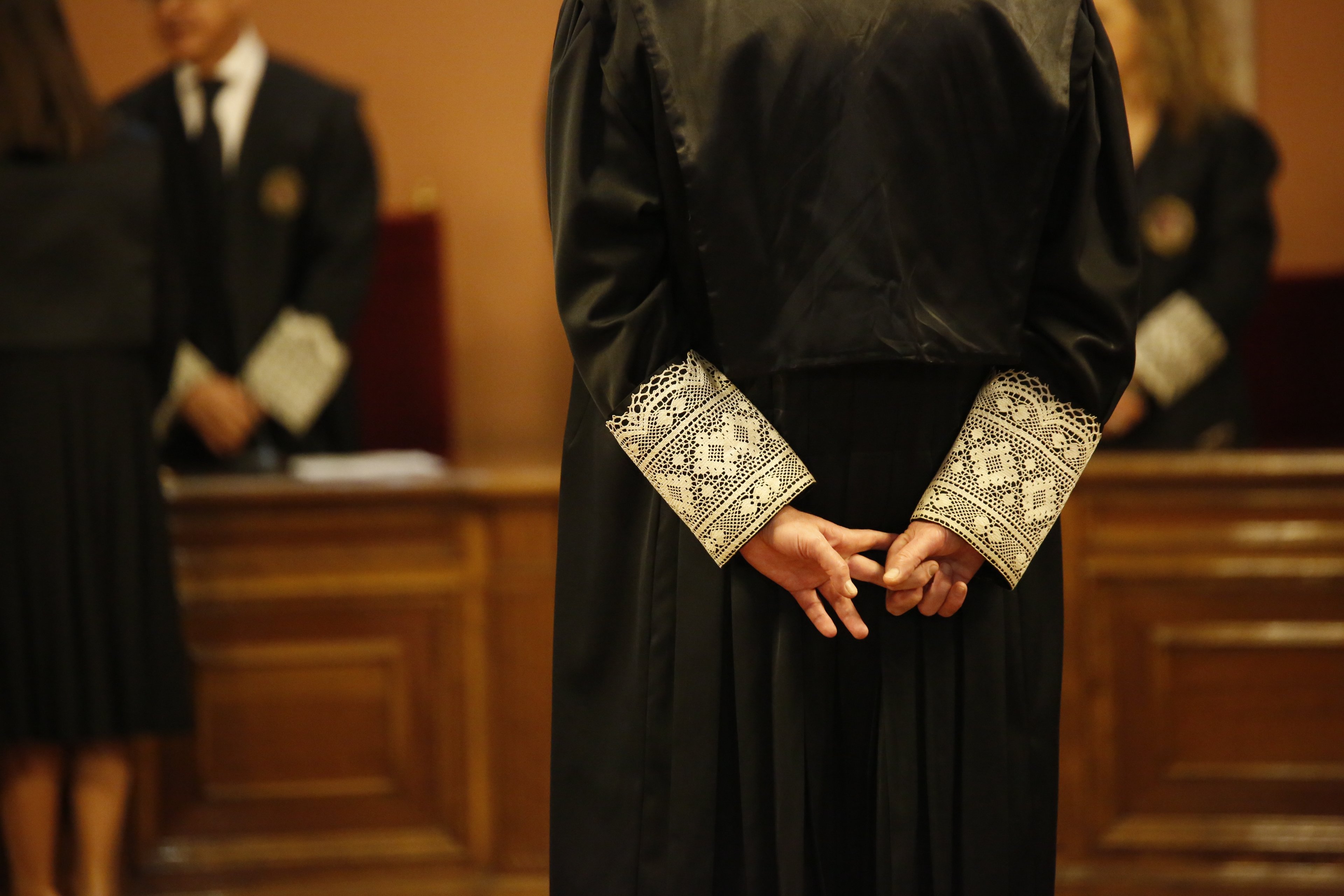Three Spanish judicial associations which represent more than 2,500 Spanish judges, have sent a letter to the EU vice president reponsible for values and transparency, Vêra Jourová, and the European justice commissioner Didier Reynders, asserting what they consider to be a "risk of serious violation" of the rule of law in the Spanish state, due to the latest legislative reforms that, in their opinion, affect judicial independence .
In the six-page letter, the signatories from the Professional Judges Association (APM), the Francisco de Vitoria Judicial Association (AJFV) and the Independent Judicial Forum (FJI), call on the European Commission to take measures, including the triggering of Article 7 of the Treaty on European Union (TEU), which includes the possibility of sanctioning a Member State for violating basic values of the European Union such as human rights or the rule of law, and which may involve the loss of that country's voting rights on the European Council.
Specifically, they call on the Commission to take note of the draft legislative reforms on the "annulment and disempowerment" of Spain's supreme body of judicial administration, the General Council for the Judiciary (CGPJ) - due to the proposed law reform that will prevent it from making appointments when it only has "acting" status - as well as "colonization by the political parties". The proposed changes compromise the appointment of high-ranking judicial officials, says the judges' submission, as well as all activity relating to the governance of judges (disciplinary, promotion, training), "and with it, their independence and impartiality." .
In the opinion of the signatories, this action places the rule of law at risk, and thus "constitutes a clear risk of serious violation by Spain of the values set out in Article 2 of the Treaty on European Union and, as such, of EU law itself".
Legislative reforms
They also demand that, within the scope of the Commission's competence, the government of Spain be urged to address legislative reforms that are compatible with the guarantees required by community law, in the terms in which the EU Court of Justice interprets them.
They add that, "in the last resort and in the event that the reported situation is not resolved", the procedure provided for in Article 7 of the Treaty on European Union will be initiated, given that "the European Commission, together with other institutions of the Union and its Member States, is responsible, in accordance with the Treaties, for ensuring respect for the rule of law as a fundamental value of our Union and for ensuring the observance of the legislation, values and principles of the EU".
In the letter, the judges explain to the Commission that the current election system of 12 of the 20 members of the CGPJ, those of judicial origin, has been endorsed by the Constitutional Court, although the condition of constitutionality depended on the political parties avoidance of simply distributing the places on the CGPJ in line with the relative size of parliamentary representation.
"After 35 years, the risks foreseen by the Constitutional Court have become unfortunate realities," adds the document. "It can be said that the current system is, de facto, contrary to the Constitution and the demands of the European institutions, according to which, "political authorities may not intervene at any point in the process in the election of members of judicial origin."
Thus, they describe that the practice, from 1985 and up to the present, has been for the main political parties to "share the CGPJ seats to be filled in secret negotiations outside Parliament and, once an agreement is reached, for the deputies and senators to vote according to the instructions given by the parties ". Previously, this was done discreetly, they add, "but now it is done with public knowledge and with comments from politicians in the press."
The judges also tell the EU that the current process of renewing the CGPJ began more than two years ago and that since then negotiators from political parties have been meeting without reaching an agreement. "Consequently, the decision of the legislative chambers is supplanted by the dominant political parties, which have also refused to modify the system of election of judicial members, despite the fact that some parties have proposed it and the judicial associations have called for it in accordance with European recommendations,” they add.
In this context, they explain the current attempt at reform which aims to reduce the majorities needed to appoint new and recently approved members and which aims to prevent the CGPJ from carrying out its most important function, which is to appoint judges to the senior judicial positions, when its mandate has expired. "The legal reform removes other powers of the CGPJ that the associations consider essential, such as the legitimacy to promote conflicts of competence between constitutional bodies.
"In short, it reduces the functions of the CGPJ to purely bureaucratic aspects, to the detriment of its essential function: to be the guarantor of judicial independence," the judges remind the European Commission.
Towards totalitarianism
They warn that the next step in the proposed bill, which has already been announced, will be "to replace the reinforced majority of 3/5 of members of the chambers - which is required to elect the members of the CGPJ - with an absolute majority , which would be achieved through the parties supporting the government, some of which openly encourage people to not respect the Constitution. "
In the opinion of these associations, "this is a law which would require the judiciary to be submissive to the political parties that dominate at all times, and that is the beginning of the path to totalitarianism, the violation of human rights and corruption."

